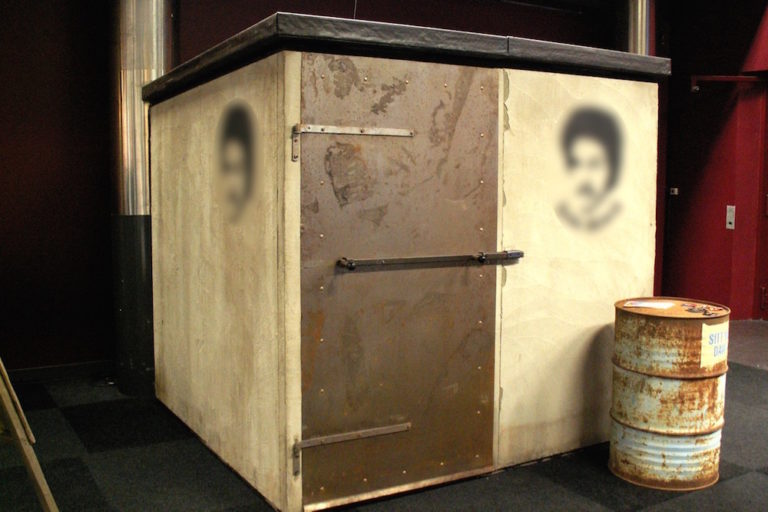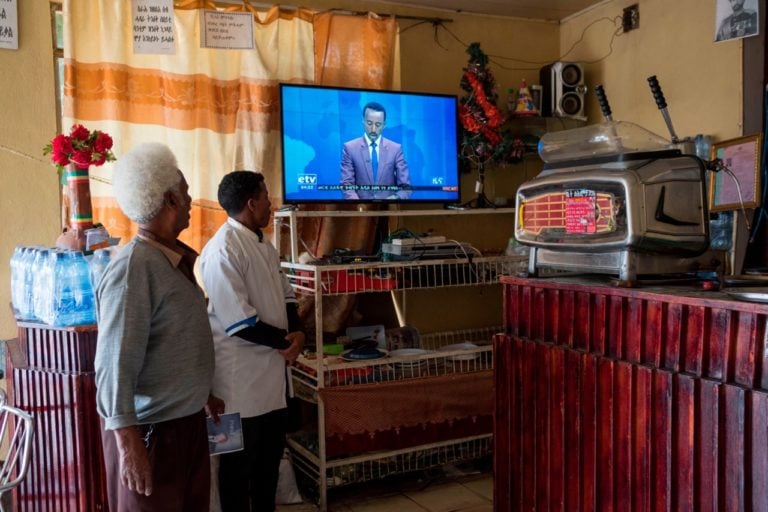Eritrean-Swedish journalist Dawit Isaak, who was taken away from his family 20 years ago, becomes one of the longest detained journalists in the world and is yet to be charged.
This statement was originally published on rsf.org on 17 September 2021.
On 18 September 2001, Eritrean President Issaias Afeworki took advantage of the fact that the world was still stunned by the 9/11 terrorist attacks to transform his country into a dictatorship and ban all independent media. On the 20th anniversary of his crackdown in Eritrea, which is still a news and information black hole, Reporters Without Borders (RSF) calls for the release of all imprisoned journalists and urges Eritrea’s partner countries to pressure its government to lift the life sentence it imposed on media freedom.
“All newspapers are banned, didn’t you hear that on the radio?” the news vendor told Tedros Abraham Tsegay when he stopped to get the 18 September issue of Setit, one of Eritrea’s most respected newspapers, for which he had been writing for the past 18 months. That’s how he learned that this issue, to which he had contributed a story, could well be the last.
A communiqué had been read out on the national radio station at dawn. All independent media outlets were now banned. The politicians who signed the op-ed calling for democratic reforms that Setit had published three months earlier were now wanted. Journalists would be next. When Tedros arrived at the newspaper that morning, the police were already there. He would never go back.
Dawit Isaak, a journalist with Swedish and Eritrean dual nationality who was one of the biweekly’s most experienced editors and who was one of Tedros’ mentors, was arrested on 23 September. He has been held incommunicado ever since, for the past 20 years, without being tried. He was briefly released in 2005, before being snatched from his family again two days later. His brother Esayas had a brief phone conversion with him once. “We spoke for a minute by telephone,” he said. “He wanted to come and see me in Sweden at Christmas.” That was the last time they were able to talk.
There has been very little news of him since then, and it has been disturbing. In 2010, a former prison guard managed to flee the country and described the conditions to which Dawit and other prisoners were being subjected. It included no visits, and extreme heat and torture, he said. Thereafter, there was nothing or almost nothing until last month, when a group of UN experts reported that, according to a source described as “credible,” Dawit was still alive in September 2020.
Of the dozen journalists arrested in September 2001, only three are believed to be still alive in the prisons where they are held incommunicado. At least 11 journalists in all are currently imprisoned in Eritrea without access to lawyers and without any plans for trials. Some of them are probably held in Eiraeiro, a detention centre built specially for prisoners of opinion. This chilling message is inscribed above the room where they are interrogated: “If you don’t like the message, kill the messenger.”
“Twenty years after the dictatorship was imposed, Eritrea is still a news and information desert in which journalists are systematically arrested, tortured and forced to go into hiding or flee the country,” said Arnaud Froger, the head of RSF’s Africa desk. “This dramatic situation, which is almost unique in the world, is the result of a policy of constant predation that tramples on the most elementary human dignity. We urge Eritrea’s partner countries to step up pressure on its government to free the journalists it is holding in the most atrocious conditions and to quickly provide proof that those held incommunicado for the past two decades are still alive.”
RSF has never stopped fighting for the release of Dawit Isaak and all the other journalists detained in Eritrea. In October 2020, RSF filed a complaint in Sweden accusing eight senior Eritrean political and security officials of crimes against humanity. They included the president, who is on RSF’s list of press freedom predators.
The Swedish judicial authorities rejected the complaint on the grounds that that it would be hard to conduct an investigation and the Eritrean authorities would not cooperate. But these are not acceptable grounds, RSF says, if Dawit Isaak is to be rendered justice and if two decades of repeated crimes against the world’s longest held journalist are not to be left unpunished. RSF is preparing an appeal with the aim of getting the Swedish authorities to reverse the decision.
Eritrea is ranked last in RSF’s 2021 World Press Freedom Index – 180th out of 180 countries.


